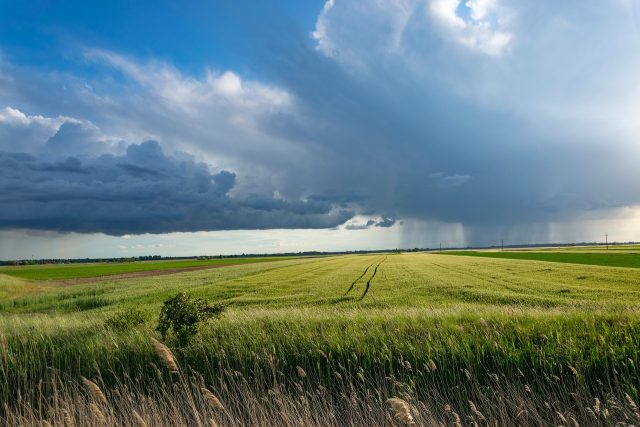
În ultimele săptămâni a fost publicat un studiu realizat de Partidul ECR intitulat Echilibrarea între ambiție și realitate.
O examinare prudentă a provocărilor tranziției ecologice a UE .
This research aims to bring the debate on the green transition back within a realistic and objective path, based on facts and on the political, economic and industrial reality of the European Union.
A path that can under no circumstances disregard the interests of the agricultural sector and the expectations of the many farmers that make up the economic fabric of the European Union.
The “sobriety” of the analysis in the study is precisely what is needed to address the many problems that this sector has been dragging along for decades.
FARMERS AS CUSTODIANS What must finally reach the chancelleries and the European institutions is the notion that the true guardians of our environment and food sovereignty are not politicians or legislators, but rather the farmers of the European Union.
More than any other sector, it is agriculture that is the pillar on which to base a future European food sovereignty sheltered from climate crises and international market fluctuations.
Unfortunately, among the enemies of this honourable objective, would seem to be also the European “Green Deal” which could target precisely the agricultural sector.
It denies the fundamental role of farmers in preserving the land, a role that ensures quality in production and enhances culture and traditions in rural areas.
Carrying forward a concept, unfortunately too deeply rooted in the European institutions, that sees farmers as a problem.
The hope instead is that this paradigm will be overturned, with the awareness that we have great resources in front of us in the fight against the climate crisis.
The link with the land must be confirmed and enhanced together with agriculture, as protecting excellence and production necessarily leads to the growth of the cultural heritage and the protection of the territories: all functions that the European Union’s policies must be ready to enhance and not to weaken.
A COMMON AGRICULTURAL POLICY TO BE REVIEWED If we really want to reform the sector, we must have the courage to get our hands on the Common Agricultural Policy (CAP) with the intention of removing all those regulations that aim at the gradual reduction of cultivated areas and that directly affect farmers’ income.
At the same time, Member States must be put in a position to influence agricultural policies, e.g. by increasing the EU limits set for state aid to the sector, as well as introducing a debt moratorium to give farmers breathing space.
At the same time, in the same vein, it is necessary to revise the so-called “Nature Restoration” rule, which stipulates, as a general objective, that Member States should take restoration measures in at least 20 per cent of the EU’s land areas.
A revision of this objective is necessary to avoid further penalising agriculture and farming.
SYNTHETIC IS NOT NATURAL A crucial point is the protection of the concept of “natural” as a shield against the introduction of synthetic elements in the production and nutrition of EU citizens.
The battle against the production and marketing of synthetic food, especially meat, is a battle that must be continued.
With it, however – and the aim is for these two struggles to continue in unison – animal welfare disciplines must be improved and extended, especially with regard to livestock farming.
LABELS AND MARKET RECIPROCITY A strong stop must be given to all regulations that, in one way or another, penalise the excellence of our agriculture. Cel mai concret exemplu este „Nutriscore”, împreună cu adoptarea obligatorie a sistemelor de etichetare nutrițională pentru produsele alimentare.
Printre cele mai izbitoare cazuri se numără cel referitor la sectorul vitivinicol, cu dorința de a avea sticle etichetate cu indicația că simplul consum al produselor este dăunător pentru sănătate.
Acest lucru necesită prudență, în special într-un sector care are în fiecare an un impact atât de puternic asupra economiilor statelor membre și care angajează atât de mulți profesioniști în întreaga Uniune Europeană.
În cele din urmă, tot pe frontul normelor, trebuie pus în aplicare un principiu simplu și foarte important: cel al reciprocității.
Deschiderea pieței noastre interne către producții care nu provin din statele membre poate fi acceptată, dar numai dacă acestea respectă standardele sociale și de mediu care sunt solicitate producătorilor noștri.



 Subscribe
Subscribe